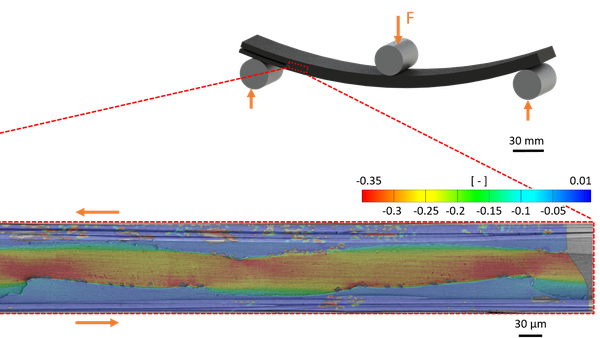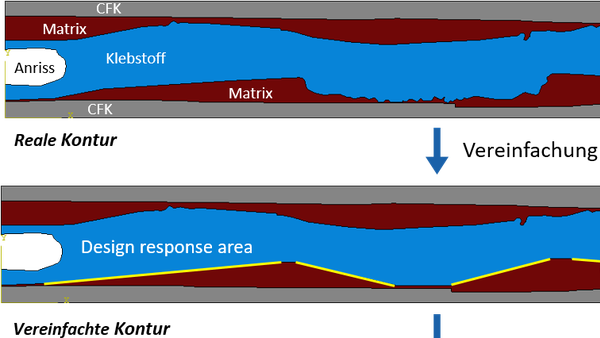Investigation of the influence of the joint topography on the service life of shear-loaded CFRP adhesive joints
Due to their outstanding lightweight construction properties, fibre-reinforced plastics have become firmly established in modern aircraft construction. Structural bonding is a joining technology that offers considerable advantages for these materials. Adhesive bonds generally enable constructions with high rigidity and low weight at the same time. Particularly in the case of fibre composites, bonded joints allow thinner wall thicknesses, prevent weakening of the joined parts, offer a more even stress distribution compared to screw or rivet joints and have good vibration damping properties [1].
However, the safe application of load-bearing bonded joints in the aerospace industry is still the subject of current research. A key challenge here is the reliable prediction of the service life and damage behaviour of the bonded joint. While the guarantee of adhesion has already been reliably mastered [2], there is a clear dependence of crack growth in shear-loaded fibre composite bonds on the joint topography [3].
Objective:
As part of a final thesis, finite element models of test specimens with different joint topographies are to be created. Using these models, the influence of the joint topography on the stress distribution in the adhesive layer is to be analysed by varying the geometry. Optionally, an optimisation of the joint topography is to be carried out with the aim of reducing the maximum stresses occurring in the adhesive layer.
Requirements and framework conditions:
Previous knowledge of FE modelling and a good basic understanding of materials are an advantage.
The work takes place in co-operation with the WIWeB Erding, but a permanent on-site presence is not necessary.
Literature
Sources
[1] M. Rasche, Handbuch Klebtechnik, München; Wien: Hanser, 2012
[2] J. Holtmannspötter, The Journal of Adhesion Vol. 96:9, p. 839 (2018).
[3] T. Thäsler, J. Holtmannspötter and H.-J. Gudladt, Key Engineering Materials Vol. 809, p. 341 (2019).


